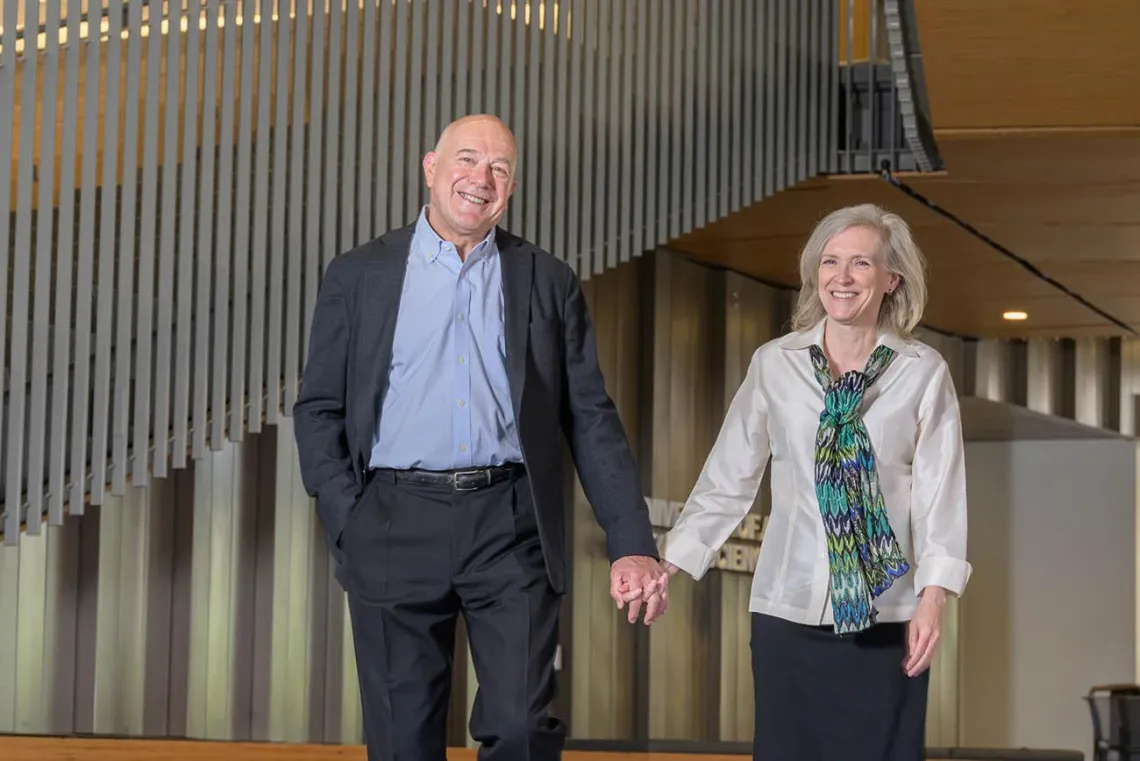Faculty-led philanthropy supports student training

R. Ken Coit College of Pharmacy professor of pharmacy practice and science Ivo Abraham, PhD, RN, and his wife Karen M. MacDonald, PhD, support international training for pharmacy students with two scholarships, one focusing on clinical rotation and the other on research.
Ivo Abraham, PhD, RN, a professor in the department of pharmacy practice and science in the R. Ken Coit College of Pharmacy, and his wife Karen MacDonald, PhD, RN, were recently highlighted by UArizona Health Sciences for establishing scholarships to support the training of future professionals.
International training for pharmacy students
Drs. Abraham and MacDonald established the Abraham-MacDonald PharmD International Clinical Rotation Award and the Abraham-MacDonald Graduate Student International Research Award in 2013.
The research award supports students pursuing a doctorate in pharmaceutical sciences to participate in research or research training in a foreign country. Both awards require that the rotation or research take place in a country classified by the World Bank as low income, lower-middle income or upper-middle income.
“With the rotation award, we wanted to create an alternative for students to gain experience in other countries,” said Abraham, who joined the College of Pharmacy in a part-time capacity in 2009 and went full-time in 2011. “A lot of them are also first-generation college students, and we really wanted to create opportunities for them to have the possibility of doing international rotations. And the research award was meant to stimulate more international lab-to-lab collaborations.”
To date, the rotation award has distributed $24,900 to 19 students, and the research award has granted $14,044 to four students. Awards ranged from $700 to a maximum of $5,000 per student with the amounts based on the student’s proposed budget. Both awards are funded entirely by Abraham and MacDonald with a total commitment of $100,000.
Article originally appeared on UArizona Health Sciences Connect.

